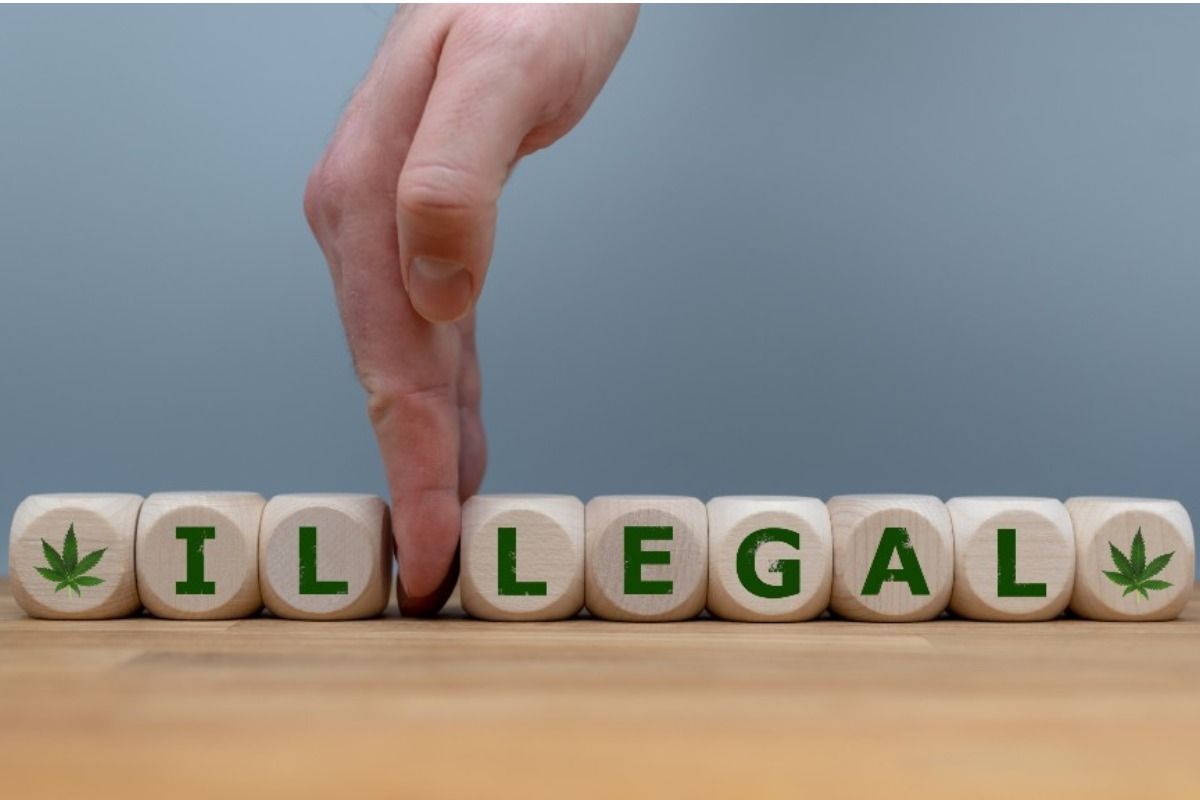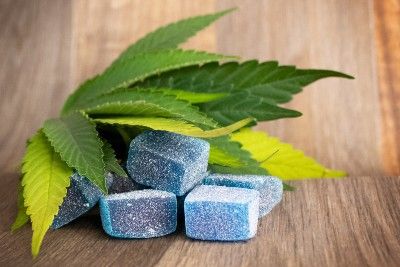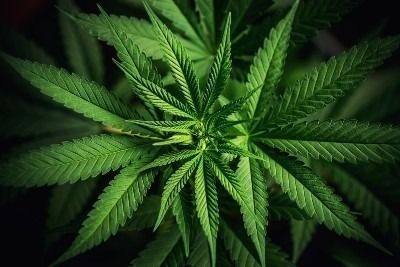Are THC Gummies Legal?

The market for cannabis edibles is booming, and gummies are leading the pack. In 2021, gummies accounted for over 70% of edible sales in six states where recreational marijuana is legal. Other states are seeing a steadily growing hemp-derived CBD and THC gummies market.
With the increase in the popularity of gummies and other edibles, the question of their legality is often one of the first asked by new consumers. This is due in part to the arbitrary nature of cannabis legality in the United States. While progress has been made in loosening cannabis restrictions across the country, marijuana continues to be illegal federally. This has caused some confusion regarding THC products like gummies and where they may or may not be legal.
In the U.S., cannabis legality depends on the laws of the individual states. However, these laws vary widely and can be difficult to navigate. This blog post will examine THC gummies and their legal status across the United States, Canada, and Europe. Read on to learn if you can safely consume THC edibles as a law-abiding citizen in your area.
Understanding THC Edibles
Humans have been infusing food with cannabis for thousands or even tens of thousands of years, but the modern version of cannabis edibles is highly sophisticated. With advanced extraction methods like CO2 becoming the industry standard, manufacturers are able to infuse foods with the purest cannabis extract in precise concentrations.
 Due to its psychoactive effects, THC is the most widely-known and widely sought-after cannabinoid, so naturally, THC edibles are the most popular food-based cannabis product. These include gummies, mints and other candies, confections, drinks, and more. Because of their convenience, flavor, and ease of production, THC gummies are currently a dominating force in the edibles market.
Due to its psychoactive effects, THC is the most widely-known and widely sought-after cannabinoid, so naturally, THC edibles are the most popular food-based cannabis product. These include gummies, mints and other candies, confections, drinks, and more. Because of their convenience, flavor, and ease of production, THC gummies are currently a dominating force in the edibles market.
These gummies are made by combining pure THC oil extract with binders like pectin and natural flavorings to create a sweet, often fruity THC edible that is a lot like candy but far more powerful than a conventional gummy bear.
Consumption of THC-infused edibles creates a psychoactive euphoria that is usually desired, but not always–and when done irresponsibly, can quickly become undesirable. Due to its mind-altering effects, THC in the form of cannabis and cannabis products is regulated similarly to alcohol in most parts of the world.
Hemp vs. Marijuana
To understand cannabis legality, it’s important to distinguish between two types of cannabis: hemp and marijuana.
Industrial Hemp
Industrial hemp is a specific group of Cannabis sativa cultivars that contain less than 0.3% THC and have multiple industrial applications. Hemp is used as a fiber in paper and cloth products, as a biofuel in hemp biodiesel, and even in the production of auto parts. It’s also heavily used to produce health supplements like CBD oil and other cannabinoid extracts.
Since the Farm Bill legalized hemp in 2018, hemp production has increased substantially, leading to the broader availability of CBD products like extracts, edibles, balms, and dog treats. More recently, the allowance of up to 0.3% THC content by dry weight in these products has spurred the production of federally legal edibles like THC gummies and THC oil. Despite this, some state laws restrict these products, so it’s not entirely accurate to say they are legal nationwide.
Marijuana
Like industrial hemp, marijuana is a cultivar of the Cannabis sativa plant, but it contains more THC than hemp plants. Whereas cannabidiol (CBD) is the primary cannabinoid found in hemp plants, tetrahydrocannabinol (THC) is the more dominant cannabinoid in marijuana. It can reach up to 30% or more in certain strains.
Due to its psychoactive properties, marijuana is much more regulated than industrial hemp and remains illegal in many parts of the world. However, the global public perception of cannabis is rapidly becoming more accepting, leading more countries to reconsider and revise their marijuana laws.
THC “Delta” Types
Tetrahydrocannabinol can be classified into three different types of the same compound: delta-8 THC, delta-9 THC, and delta- 10 THC. Delta-9 THC is the most abundant and sought-after for its psychoactive effects; it is the primary cannabinoid in products like delta-9 THC gummies. Delta-8 and delta-10 THC exist naturally in cannabis plants but in much smaller amounts than delta-9 and are generally considered less potent.
10 THC. Delta-9 THC is the most abundant and sought-after for its psychoactive effects; it is the primary cannabinoid in products like delta-9 THC gummies. Delta-8 and delta-10 THC exist naturally in cannabis plants but in much smaller amounts than delta-9 and are generally considered less potent.
Because the Farm Bill only relates to delta-9 THC products, there is some controversy and ambiguity surrounding the legality of delta-8 and delta-10. Since they both occur in much smaller amounts in cannabis, making a large enough quantity to be marketable usually requires synthetic production. In the United States, these synthetic cannabinoids are considered artificial and are illegal in many states–including some that have legalized cannabis, like Colorado and Oregon.
Are THC Gummies Legal?
Cannabis restrictions are loosening across the world at a faster rate than ever before. The market for cannabis products continues to grow as negative stigmas and perceptions dwindle, making an enticing argument in favor of legalization in places where the idea may have been considered a fairytale just years ago.
United States
Since enacting the Controlled Substances Act of 1970, cannabis has been considered a Schedule I controlled substance in America under Federal law. However, ongoing research into the potential therapeutic applications of cannabis, along with shifting cultural paradigms surrounding its acceptance and usefulness, presents a compelling challenge to its placement in this class.
California became the first state to legalize medical marijuana in 1996. In 2012, Colorado and Washington became the first states to legalize recreational cannabis. As of 2023, recreational marijuana is legal in 21 U.S. states, and the District of Columbia, and medical use is permitted in all but 11 states. Some states allow for the medical use of CBD oil, and some do not.
In most of the United States, THC gummies are legal, provided they are hemp-derived, with a dry weight limit of 0.3% THC per serving. Specific regulations regarding edibles differ across states – in Colorado, for example, there can be no more than 10mg of THC per serving in an edible product, regardless of whether it is derived from hemp or marijuana.
Canada
In October 2018, the Cannabis Act was passed in Canada, making it the second nation after Uruguay to legalize recreational cannabis nationwide. However, THC edibles were not made legal until a year later, with strict regulations on their production, labeling, packaging, and selling.
Cannabis regulations in Canada differ from province to province, with some areas having tighter restrictions than others. For example, in Quebec, the minimum age to purchase recreational cannabis is 21, and home growing is not permitted. By contrast, most other provinces allow cultivating up to four cannabis plants per household, with a legal purchase age of 19.
THC gummies and other edibles are subject to strict regulations in Canada. These regulations include child-resistant packaging, clear labeling that describes cannabinoid content, serving size, etc., and limitations of 10mg THC per container. In addition, there can be no mention of health claims or benefits.
Europe
The legality of THC gummies and other cannabis products in Europe differs from country to country. The European Union has approved the cultivation of industrial hemp up to 0.3% THC, loosening restrictions on products like CBD oil. Still, THC gummies and other edibles are more restricted across the continent.
In most European countries, medical cannabis is legal and recreational cannabis is decriminalized, although some countries like Germany are well on their way to legalizing recreational cannabis nationwide.
Where to Buy Legal THC Gummies
Hemp-derived THC gummies can be purchased legally at NuLeaf Naturals’ online CBD shop. Our gummies fully comply with federal laws and are available in most U.S. states.
We use only natural, organic ingredients, including real organic fruit juice, in our gummies. We also use pectin instead of gelatin, so they’re vegan-friendly too!
All NuLeaf Naturals products are made under the highest production standards, and each batch is third-party lab-tested with certificates of analysis available online.